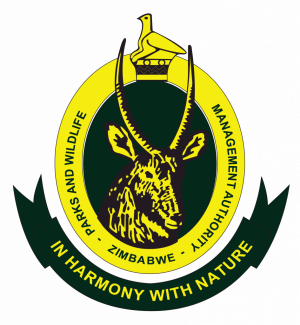
The government of Zimbabwe is once again under legal scrutiny as it faces a fresh lawsuit concerning the controversial development of a tourism facility near the iconic Victoria Falls. The lawsuit, filed by a coalition of environmental groups and local stakeholders, claims that the project could cause irreversible damage to one of the world’s most revered natural wonders and disrupt the local ecosystem.
Victoria Falls, one of the Seven Natural Wonders of the World, draws millions of tourists each year with its breathtaking beauty and unique cultural significance. The proposed tourism development aims to build luxury hotels, restaurants, and other recreational facilities near the falls, which is expected to boost the country’s tourism sector and contribute to its economic recovery. However, critics argue that the development comes at a severe environmental cost, potentially threatening the very attraction that draws visitors to the region.
The lawsuit, filed in the High Court of Zimbabwe, accuses the government of breaching environmental laws and regulations by allowing such a large-scale development in a sensitive area. The plaintiffs argue that the construction could lead to deforestation, wildlife displacement, water contamination, and an overall negative impact on the natural habitat of the surrounding region.
At the heart of the legal challenge is the claim that the project has not undergone a proper Environmental Impact Assessment (EIA), a legal requirement for any development in ecologically sensitive areas. The plaintiffs have expressed concerns that the rushed approval process for the development has disregarded the potential long-term damage to the environment, particularly the Victoria Falls National Park, which is home to various endangered species and acts as a critical buffer zone for the falls themselves.
Furthermore, local communities who rely on the falls for their livelihoods are also raising alarms about the potential disruption the facility might cause. Many of the local people are involved in sustainable tourism ventures, such as guiding visitors to the falls or selling handmade crafts. They fear that the influx of large-scale luxury tourism will drive up living costs, displace indigenous businesses, and ultimately diminish the authentic experience that visitors come to Victoria Falls for.
The lawsuit further claims that the development threatens the cultural significance of the region. The Victoria Falls area has long been regarded as sacred by local tribes, and many indigenous people see the falls not just as a natural wonder but as an essential part of their cultural identity. The plaintiffs argue that the new tourism infrastructure, especially the planned commercial developments, could erode the local community’s heritage and traditions.
In response to the lawsuit, the government has defended the project, stating that it is vital for the economic growth of Zimbabwe and for the development of the tourism industry, which is seen as a key driver of the nation’s recovery. Government spokespersons have also emphasized that the development is expected to create thousands of jobs, improve infrastructure, and bring much-needed revenue to the country, especially in the post-pandemic era, when the tourism sector has been hard hit.
The government has also assured the public that all necessary environmental regulations will be followed, and that sustainable practices will be incorporated into the project. They argue that the facility will be built with minimal environmental impact and that it will not interfere with the natural beauty of Victoria Falls. Additionally, government officials point out that the tourism industry has long been an important part of Zimbabwe’s economy, contributing significantly to both national income and employment.
Despite these assurances, the lawsuit continues to gather support from local activists, environmentalists, and international organizations who remain skeptical about the long-term viability of such a development. The plaintiffs are urging the court to halt the project until further investigations are conducted and proper consultations are made with all relevant stakeholders, including local communities, environmental experts, and tourism industry representatives.
The case has sparked widespread debate within Zimbabwe and beyond, with many questioning whether the economic benefits of large-scale tourism developments outweigh the potential environmental and cultural costs. As the lawsuit moves forward, the future of Victoria Falls as a natural and cultural treasure is now at the center of a legal and ethical battle that could set a precedent for similar projects around the world.
For the moment, the project’s fate lies in the hands of the Zimbabwean judiciary, and its outcome could have significant implications for both the tourism industry and the preservation of one of the world’s most extraordinary natural wonders. The ongoing legal proceedings are expected to draw attention from environmentalists and global tourism experts, who will closely monitor how Zimbabwe navigates the balance between economic development and environmental conservation.

